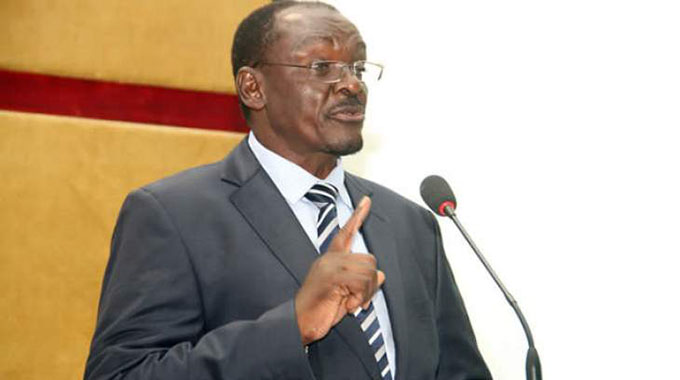
Thupeyo Muleya Beitbridge Bureau
Maize distribution to vulnerable people, especially in rural areas, must be expedited to ensure no one goes hungry, Vice President Kembo Mohadi has said.
He said it was important for Government to take care of citizens, especially those affected by the ongoing lockdown.
VP Mohadi was speaking on Friday in Beitbridge where he was assessing the border town’s preparedness to fight Covid-19, especially quarantine and isolation facilities.
He has since directed the Ministry of Public Service, Labour and Social Welfare to make arrangements so that maize reaches beneficiaries.
His intervention followed an impassioned plea by Beitbridge East legislator Cde Albert Nguluvhe, who said many people in his constituency were food insecure.
“I have heard your pleas, let me assure you that nobody will die of hunger,” said VP Mohadi.
“We have since directed the Minister responsible for welfare issues (Prof Paul Mavima) to make sure that food is timeously delivered to the people.
“There have been delays in moving grain into the country in the last few days, but that has improved. At the same time, the communities need to register more people under the drought relief so that we cover all those in need of food.”
Deputy Minister of Public Service, Labour and Social Welfare, Lovemore Matuke, said food supply had improved, with deliveries getting into the Grain Marketing Board (GMB) depots from both the local market and imports.
He said they would expedite deliveries to all the needy areas to avert hunger, and were presently working on increasing the tonnage to accommodate more people.
Tonnage increased for most districts in Matabeleland from 440 tonnes to over 700 a monthly.
A visit to Mberengwa recently showed that villagers were receiving food, with Ward 17 getting its allocation from the Social Welfare Department at Vutika Business Centre a fortnight ago.
Each vulnerable family is getting 50kg maize and headmen are happy with the Government support.
Cde Nguluvhe said many people in Beitbridge relied on cross border trade for income generation, while others survived on relatives in South Africa.
